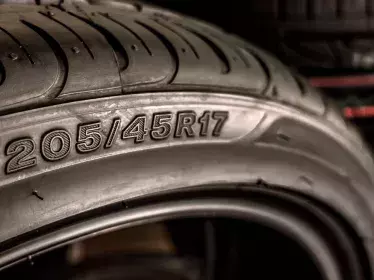Cleaning your car is not just about making it shine. Cleaning also protects against wear and tear, increases driving safety and reduces environmental impact. That's why it's so important to clean your car regularly.
Meeting service schedules, checking levels, monitoring tyre pressure all seem logical when you own a car. On the other hand, washing a car regularly is often neglected, although there are many advantages. Washing a car not only improves its longevity, but also its safety and, even more surprisingly, its environmental footprint.
1. Reduce wear and tear
It's often thought that washing a car is just about making the bodywork shine. But washing your car is more than that. It also prolongs life by reducing wear and tear. In addition to how it looks, regular washing protects the body and bodywork from corrosion. Washing protects against a multitude of assaults caused by mud, dust, pollen, bird droppings, tree sap and air pollutants that can deposit a layer of particularly acidic dirt on the paintwork.
In addition, dry and very sunny conditions are also an aggravating factor for the body and therefore the integrity of the vehicle. This is also the case in very cold weather. In winter, the amount of salt on the roads also damages less visible parts, such as underbody areas.
Remember that the longer you wait, the harder it will be to recover paint and damage to the bodywork or even to the chassis. And remember to opt for washing programmes that offer wax. This thin, deposited layer will largely prevent the dirt from becoming encrusted.
2. Guaranteed hygiene

If exterior cleaning is important, remember that the car's interior also needs special attention. Because many people use it, this habitation area can quickly become a harbour for bacteria. The cold, hot and humid conditions that can be passed on at times quickly create ideal conditions for the multiplication of microbes and fungi. Several studies show, for example, that a steering wheel can have around 800 bacteria per cm2; 10 times more than what is found on a toilet seat. Carpets should therefore be cleaned regularly, vacuumed and all surfaces disinfected (instrument panel, seats, door mouldings, steering wheel, knobs, etc.).
3. Maximise safety
Cleanliness is also a matter of course for safe driving. Clean windows and headlights contribute to good visibility, and to being seen by other road users. In addition, clean windows on the inside will also prevent the formation of condensation when the weather is wet. To summarise, travelling in a clean car significantly improves safety.
4. Protect the environment

This is probably the most unexpected effect of washing your car – a positive impact on the environment. Provided this is done in a car wash. Over time, the bodywork is covered by all sorts of pollutants in suspension in the atmosphere: iron, nickel, lead, hydrocarbons, etc. If you don't wash your car or just wash it anywhere, these accumulated residues will run off and end up in the groundwater. However, car washes have equipment that allows these elements to be recovered in the form of sludge. These are then processed. Of course, manual or car washes also make it possible to use less water to carry out the operation. Up to 90% lower than at home.
5. How often should I wash my car?

But how often should you wash your car? Good question. The recommendation is that this should be done twice a month or even once a week for drivers who cover a lot of miles or those who park their car in a more hostile environment. Either way, washing your car will never be a waste of time or money. Quite the contrary.






